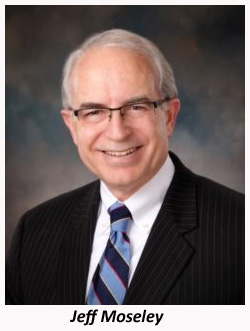 A coalition of business groups led by the Texas Association of Business filed suit this week to try to prevent Austin’s recently-passed requirements for paid sick leave from ever taking effect. Vowing to keep up their fight, activists who worked overtime pushing the ordinance called the lawsuit “frivolous” and “shameful.”
A coalition of business groups led by the Texas Association of Business filed suit this week to try to prevent Austin’s recently-passed requirements for paid sick leave from ever taking effect. Vowing to keep up their fight, activists who worked overtime pushing the ordinance called the lawsuit “frivolous” and “shameful.”
The regulations, approved earlier this year on a vote of 9 to 2 by the Austin City Council, would require businesses to give employees one hour of sick time for every 30 hours worked up to 64 hours. Employees could use the time on themselves or to take care of a family member. Any unused time could be carried over to the next year. Employers found to be in violation could face fines up $500.
“The Texas Association of Business is proud to be lead plaintiff and to partner with the Texas Public Policy Foundation, NFIB and several staffing agency members in filing this lawsuit against the City of Austin,” said Jeff Moseley, CEO of the TAB.
“Austin and Texas business leaders know how to run their businesses and can do so more productively without over-reaching regulations that stifle the economy and cost jobs,” Moseley said. “We needed to move quickly and stop any bleeding that might occur from this ordinance … it's overreaching, and it's hard-hitting to small employers.”
“Local measures purporting to regulate employment practices, like Austin’s paid sick leave ordinance, create a patchwork of rules and regulations that are difficult for small businesses to navigate, especially for companies with mobile employees,” said Will Newton, who heads up the Texas branch of the National Federation of Independent Business, or NFIB.
“These ordinances create extra work and significantly drive up the cost of doing business in Texas,” Newton said.
“With its mandatory paid sick leave ordinance, the City of Austin once again violates Texas state law and infringes upon the rights of Austin businesses protected by the Texas Constitution,” said Robert Henneke, an attorney representing the business groups.
“The City’s ordinance is preempted by the Texas Minimum Wage Act. Furthermore, the City lacks evidence to support any legitimate governmental interest that would support imposing this regulatory burden on all business owners,” Henneke said.
Among their other arguments, the business groups say the ordinance runs afoul of longstanding Texas law that seeks to “relieve Texas employers of the burden of keeping track of and complying with myriad burdensome local laws.”
“Other problems include the one-size-fits-all nature of the ordinance and the inability for businesses to offer flexible solutions for sick leave,” the business groups said in a written statement.
A group called Work Strong Austin, which pushed for passage of the measure, said the lawsuit was “shameful.”
“After losing a historic vote that made Austin the first city in the U.S. South to require paid sick time, special interest groups linked to the Koch Brothers and Greg Abbott are now seeking to undermine the democratic process and take away this basic human right from 223,000 working families,” the group said.
The paid sick leave ordinance is now under fire on multiple fronts.
Even if the business groups are unsuccessful in their lawsuit, Representative Paul Workman, R-Austin, and other Republicans have said they'll work to repeal the ordinance through state statute in 2019 when the Legislature meets again in regular session.
“The State of Texas must and will protect the citizens from out-of-control city governments that harm our private-sector job-creators and economy,” Workman said.
“Just as last session the state legislature was successful in preempting the City of Austin's ruinous ridesharing mandates and ‘linkage fees’ scheme, so too will the state legislature step in and protect job creators from the Austin Mayor and City Council's employee-leave mandate on private-sector employers,” Workman said shortly after the ordinance was passed.
Business Groups Sue to Block Austin Paid Sick Leave Ordinance
by Scott Braddock | April 26, 2018


